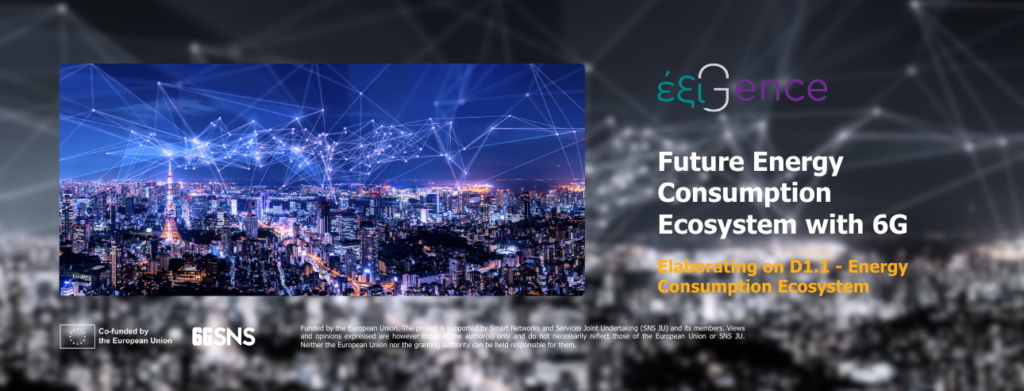
The future of connectivity is 6G, and it promises not just faster speeds, but a smarter, greener world. The EXIGENCE project deliverable presents an innovative value network that explores the critical intersection of 6G and the energy ecosystem of tomorrow. This is not just about faster downloads; it’s about fundamentally changing how we consume energy and shrink the carbon footprint of our increasingly digital lives.
This deliverable focuses on the intricate relationship between 6G and smart energy grids. It goes beyond simply identifying the technologies involved. Instead, it meticulously maps out the key players, from traditional ICT providers to the emerging stakeholders in the smart energy sector, creating a comprehensive picture of this evolving landscape. This innovative approach allows us to understand the complex interplay between these actors, their energy dependencies, and the crucial stakeholder relationships that will shape the future of 6G and its impact on energy consumption.
Why is this holistic view so important?
Because simply developing energy-efficient technologies isn’t enough. True impact requires a deeper understanding of the entire ecosystem. This analysis reveals that maximising energy efficiency and minimising our environmental impact demands a multi-faceted approach. We need to understand:
- Who are the key players and what are their roles? Mapping the ecosystem helps us identify all relevant stakeholders, from end-users to network operators, energy providers to policymakers.
- What are the business relationships and energy dependencies? Understanding how these stakeholders interact and rely on each other for energy is critical for developing effective solutions.
- What is the overall impact on the ecosystem? Analysing the broader impact of 6G on energy consumption helps us identify areas for improvement and optimise the entire system.
By understanding these crucial elements, we can move beyond technical solutions and create a framework for real change. This analysis is not just theoretical; it has practical implications. It allows us to:
- Gauge the likelihood of acceptance of new solutions: By understanding the needs and motivations of all stakeholders, we can refine our proposals to minimise resistance and maximise adoption.
- Identify the support needed from other entities: Recognising the role of policymakers and other key players allows us to build partnerships and create a supportive environment for innovation.
- Complement technical solutions with other essential approaches: This research highlights the importance of incorporating business incentives, user engagement strategies, and other non-technical approaches to drive adoption of energy-efficient practices.
This deliverable is just the first step. A follow-up will delve into the development of effective incentive mechanisms to motivate all stakeholders to embrace energy-efficient and carbon-aware behaviours. This comprehensive approach, combining technical innovation with a deep understanding of the ecosystem and its stakeholders, is crucial for realising the full potential of 6G and building a more sustainable future. It’s not just about faster speeds; it’s about a smarter, greener future powered by 6G.
Conclusions
This deliverable is just the first step. A follow-up will delve into the development of effective incentive mechanisms to motivate all stakeholders to embrace energy-efficient and carbon-aware behaviours. This comprehensive approach, combining technical innovation with a deep understanding of the ecosystem and its stakeholders, is crucial for realising the full potential of 6G and building a more sustainable future. It’s not just about faster speeds; it’s about a smarter, greener future powered by 6G.

Huawei Technology Dusseldorf GmbH
Dr. Artur Hecker, with an MSc from Universität Karlsruhe and a PhD from ENST Paris, directs networking research at Huawei Munich, focusing on IT/networking convergence. He leads research on mobile core networks, cloud integration, and sustainable ICT, notably as Deputy TM of the EXIGENCE project. He chairs the 6G-IA’s Vision and Societal Challenges Working Group and has extensive experience in Networld Europe, academia (Télécom ParisTech), and industry, with over 20 years in networks and security.

Huawei Technology Dusseldorf GmbH
Dr. Zoran Despotovic holds an M.Sc. from the University of Belgrade and a Ph.D. from EPFL, specialising in peer-to-peer systems and network economics. He worked at NTT DOCOMO on mobile networks and cloud computing before joining Huawei’s European Research Center as a principal engineer, focusing on mobile networks, SDN, and sustainable networks. He’s a prolific researcher with over 50 publications and chairs the one6G “6G technology enablers” working group.

